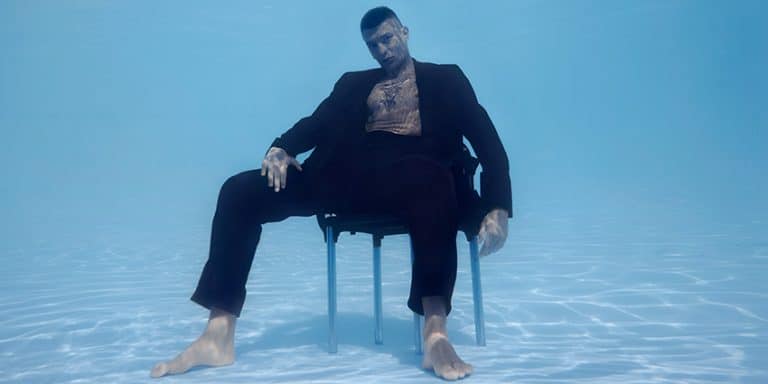Societal expectations and gender roles have done a pretty effective job at destroying our sexual confidence.
The most common query I get in my DMs are tips for maintaining an erection during sex. I can’t say I’m surprised, considering men are often portrayed as sex-starved neanderthals with perpetually hard cocks who will stop at nothing to spread their seed. Porn—something we watch for 70 minutes per week, on average—doesn’t help either, with men possessing the boners and stamina of Olympic love-makers. Which, in a way, I guess they are.
The point being, these representations are not indicative of real life. Stats show that more than one in four men under 40 experience erectile dysfunction, meaning they cannot get or keep an erection firm enough for intercourse, and this statistic jumps to 70% by the age of 70. So, don’t beat yourself up if your penis isn’t cooperating, it’s normal. Inconvenient, but normal.
Admittedly, it can be difficult to determine the cause, as erectile dysfunction can stem from both physical (weight, blood pressure, heart health) and psychological (anxiety, depression, stress, self-esteem) factors. Perhaps knowing the most prevalent factors can help, so let’s start there.
Urologist and men’s health specialist, Dr. Justin Houman, MD, says there are four elements that contribute to a strong erection: blood flow (which includes medications), testosterone levels, nerve function, and psychological factors (which includes anxiety and depression).
Physically, the state of our erections is directly correlated to our heart health. One study in particular found that adhering to a Mediterranean diet could be helpful as it “improved lipid and glucose metabolism, increased antioxidant defenses, and increased arginine levels, which could raise nitric oxide activity.” These diets emphasize fruits, vegetables and whole grains, while limiting meat and dairy.
Considering obesity and high-blood pressure can also impact erectile function, researchers found that aerobic exercise had a “significant effect” on reducing erectile dysfunction, as exercise encourages blood flow and circulation and penises require blood flow to become erect.
An academic analysis found that 40 minutes of moderate to vigorous exercise four times a week is enough to reduce erectile dysfunction. However, this was only found helpful in people who were obese, had cardiovascular disease or were otherwise inactive.
Substances like cigarettes, alcohol and drugs can impact the quality of erections as well. The nicotine in cigarettes causes blood vessels to narrow, reducing blood flow into the soft tissue of your penis. It also builds plaque inside your arteries, further restricting blood flow and harming your overall cardiovascular health.
Alcohol, as is made abundantly clear after a night of excessive drinking, dehydrates the body, which lowers blood volume, reduces circulation, and depresses your central nervous system, which can make it difficult to get an erection while reducing the intensity of orgasm. In fact, research found that the amount of alcohol a person consumes is the most significant predictor of developing sexual dysfunction.
Cocaine similarly limits blood flow. One study sampled 228 cocaine users and found that 57%had experienced erectile dysfunction. Essentially, the goal to a healthier erection from a physical perspective is to encourage blood flow, and we can do this by maintaining strong cardiovascular health.
Psychological factors, such as stress, depression and anxiety, can interrupt how your brain sends messages to the penis to allow extra blood flow and can contribute to a cycle of ongoing ED. Psychological ED affects about 90% of teenagers and young men.
“I will give you a common example: a young guy might have a bad sexual experience either due to anxiety or having more than a few drinks,” Dr. Houman explains. “The next time he’s trying to engage in intercourse, he remembers the previous time and gets stressed out, further worsening his erection this time. This leads to a vicious cycle where one bad erection leads to another, which leads to a string of them.”
Psychological ED tends to go away with time. If it doesn’t, therapy and counselling can help break the cycle.
“Porn-induced erectile dysfunction” is something else disproportionately affecting younger men. This occurs when excessive porn habits interfere with reward sensitivity in the brain, and reduces your brain’s response to sexual stimulation. Research in Computers in Human Behaviour found that watching porn is closely linked to lower overall sexual satisfaction and lower erectile function. The solution here would be to limit exposure to such content and see if that makes a difference.
Herbs and supplements are said to improve sexual function, such as: Epimedium sagittatum (aka: horny goat weed), L-Arginine, ginseng, maca and yohimbe. However, you should speak with a doctor before using herbs and supplements as herbal medicine is not controlled by the FDA and is therefore not subject to the rigorous trials required of prescription medications.
Speaking of, prescription medications such as sildenafil (or Viagra), tadalafil (Cialis) and avanafil (Stendra) are yet another solution, and work by inhibiting the enzyme that regulates blood flow to your penis.
However, other medications like SSRIs to treat depression and anxiety can impact erections and desire. These work increasing serotonin levels which, in turn, can impact testosterone and dopamine levels. “This could potentially lead to sexual dysfunction symptoms, including erectile dysfunction and low libido,” Houman says. The CDC reports that approximately 15% of American men have used antidepressants in the last 30 days, and that usage increases with age.
As you can see, there are a plethora of factors that may be contributing to the strength and regularity of your erections. The best approach to a more “tenacious D” is by keeping your heart and mind healthy. If issues persist, talk to a doctor about solutions that may be more effective for you, and don’t be shy, your doc has definitely heard this before.
Above all else, recognize that there is nothing wrong with you; again, erectile issues are common. So, be kind to yourself… and to your penis.

